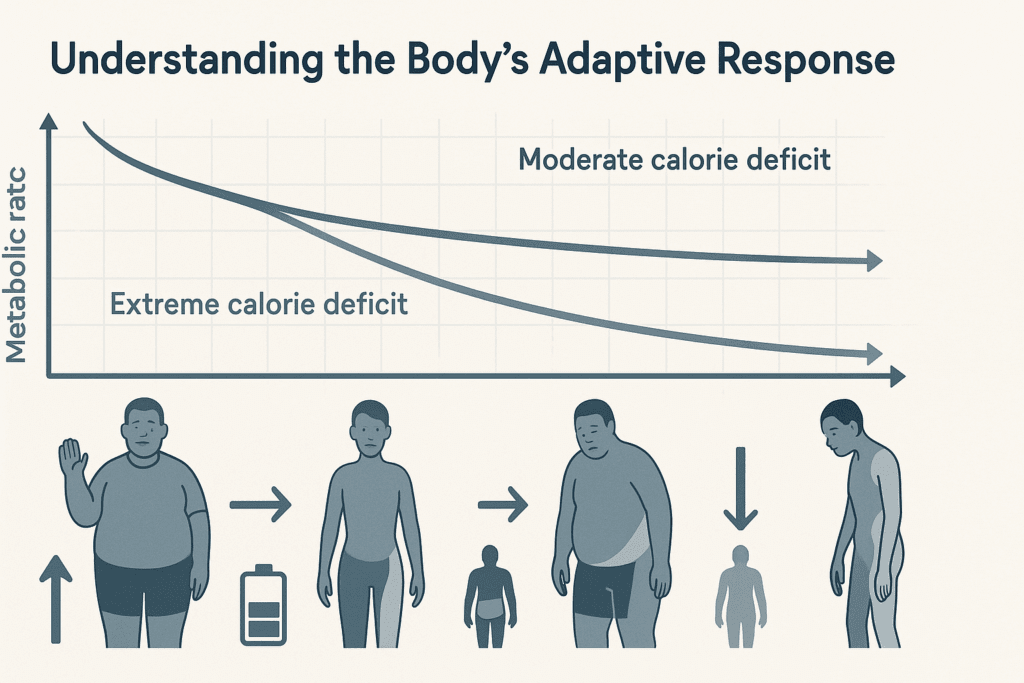Introduction: Setting the Stage for Realistic Weight Loss Expectations
In the quest for better health and a leaner body, many people find themselves wondering just how much transformation can realistically occur in a short period of time. Among the most common questions asked is: how much weight can you lose in 3 weeks? It’s a timeframe that feels tangible yet ambitious, appealing to those eager for results but mindful of sustainability. The desire to lose weight quickly must always be balanced by a commitment to health, science, and evidence-based strategies. This article takes a deep dive into the medical, nutritional, and physiological factors that influence weight loss over a 21-day period, offering expert insight into what is safe, achievable, and genuinely transformative.
You may also like: Expert-Backed Weight Loss Tips for a Healthier Lifestyle: What You Need to Know for Long-Term Weight Control and Wellness

The Science Behind Weight Loss: Understanding the Basics
Setting realistic expectations begins with an understanding of how the human body processes fat, calories, and energy. While diet fads may promise dramatic drops on the scale, it’s important to remember that true fat loss takes time. Experts generally agree that the healthiest rate of weight loss is about one to two pounds per week. This benchmark is grounded in decades of research and clinical experience, reflecting the rate at which the body can burn fat without triggering harmful stress responses or muscle breakdown. So when you ask how much weight can you lose in 3 weeks, the evidence-based answer is typically between three and six pounds—though individual outcomes may vary based on baseline weight, diet, exercise habits, and metabolic health.
Caloric Deficit and the Role of Nutrient Quality
Weight loss isn’t simply about eating less and moving more. While a calorie deficit remains central to the process, the quality of the calories consumed plays a critical role in how the body responds. Cutting out processed foods, added sugars, and refined carbohydrates can lead to rapid initial losses, often due to decreased water retention. Carbohydrates bind with water in the body, so when intake is reduced, the body sheds fluid along with glycogen stores. This is why the first few pounds may come off quickly. However, this early drop does not necessarily indicate fat loss, and relying on scale weight alone can lead to unrealistic expectations. To truly measure progress, experts advise tracking waist circumference, energy levels, and how clothes fit in addition to scale changes.

Designing a Healthy Three-Week Nutrition Plan
A healthy three-week weight loss plan should begin with dietary adjustments that prioritize whole, nutrient-dense foods. Leafy greens, lean proteins, healthy fats, and high-fiber vegetables offer satiety, regulate blood sugar, and support digestive health—all essential for sustainable fat loss. Meal timing and composition also matter. Including protein with every meal, staying hydrated, and avoiding late-night snacking are practices that can help stabilize metabolism and reduce cravings. When asking how much weight could you lose in 3 weeks, the answer depends significantly on how well these habits are integrated into daily life. Crash diets that promote severe restriction may backfire by slowing the metabolism, increasing stress hormones like cortisol, and setting the stage for rebound weight gain.

Exercise and Metabolic Adaptation: Moving with Intention
Physical activity amplifies weight loss results, not just by burning calories but by preserving lean muscle mass and boosting overall metabolic rate. A mix of aerobic exercise and resistance training provides the greatest benefit. Cardiovascular activities such as walking, jogging, or cycling improve heart health and promote fat oxidation, while strength training prevents muscle loss and enhances insulin sensitivity. Over a three-week span, those who commit to consistent movement are more likely to experience significant fat loss rather than just water or muscle depletion. Importantly, exercise also supports mental well-being, reducing stress and enhancing mood—factors that can influence eating behaviors and long-term adherence to healthy habits.

The Critical Role of Sleep and Recovery
One of the most underestimated influences on weight loss is sleep. Chronic sleep deprivation interferes with the body’s ability to regulate appetite, often leading to increased cravings for high-calorie foods. Hormones like leptin and ghrelin, which help signal fullness and hunger, become dysregulated when sleep is compromised. This means that even with a well-planned diet and exercise routine, inadequate sleep can stall or reverse progress. For those wondering how much weight can you lose in 3 weeks, quality sleep can be the differentiator between success and stagnation. Prioritizing 7 to 9 hours of restful sleep per night, practicing good sleep hygiene, and managing evening screen time can help restore hormonal balance and improve metabolic outcomes.
Managing Stress to Support Sustainable Progress
Stress, like sleep, plays a pivotal role in weight regulation. Elevated cortisol levels contribute to fat storage, particularly around the abdominal area. Moreover, stress can lead to emotional eating, mindless snacking, and reduced motivation to engage in healthy behaviors. Managing stress through mindfulness, meditation, physical activity, or social connection can enhance the effectiveness of a three-week weight loss strategy. While many people view weight loss in purely physical terms, emotional health is often the key to unlocking sustainable results. In clinical settings, patients who practice stress management techniques alongside dietary changes tend to show more consistent and long-lasting weight loss.
Hydration and the Fat-Burning Process
Hydration is another fundamental, yet often overlooked, aspect of weight management. Drinking adequate water supports metabolic function, aids digestion, and helps prevent overeating. Sometimes the sensation of thirst is misinterpreted as hunger, leading to unnecessary calorie intake. Moreover, water is essential for the breakdown of fat during lipolysis—the process by which the body converts fat into usable energy. In a three-week timeframe, increasing water intake can help eliminate bloating, improve energy levels, and support fat metabolism. Experts often recommend starting each meal with a glass of water and aiming for half your body weight in ounces daily, adjusting for activity level and climate.

Understanding the Body’s Adaptive Response
Another point of nuance lies in understanding the body’s adaptive mechanisms. As weight drops, the body often responds by decreasing basal metabolic rate, a phenomenon known as adaptive thermogenesis. This evolutionary defense mechanism makes continued weight loss more difficult over time, particularly for those who lose weight quickly. For this reason, extreme caloric restriction over a three-week period may yield diminishing returns. Instead, adopting a moderate deficit—around 500 calories per day below maintenance—is more likely to preserve muscle, maintain metabolic rate, and avoid energy crashes. When evaluating how much weight could you lose in 3 weeks, factoring in the body’s natural adaptations can help temper expectations and inform smarter strategies.
Personal Differences and Medical Considerations
Individual variation cannot be overstated in any discussion of weight loss. Age, sex, genetic factors, and hormonal status all influence how easily a person can shed pounds. Women in perimenopause or menopause, for example, may face added challenges due to shifts in estrogen, progesterone, and insulin sensitivity. Likewise, individuals with hypothyroidism or insulin resistance may experience slower results despite strict adherence to a program. This is why personalized plans, ideally developed with input from a registered dietitian or health professional, yield better results than generic meal plans or internet-based detoxes. Health professionals can help determine realistic outcomes and provide science-backed guidance tailored to unique needs.

Behavioral Change and the Psychology of Weight Loss
Behavioral change also plays an enormous role in shaping outcomes. Establishing daily routines, planning meals in advance, journaling food intake, and setting small, measurable goals all enhance compliance and accountability. When people understand the “why” behind their efforts and see the bigger picture beyond the number on the scale, motivation becomes more intrinsic. A person who starts their journey by asking how much weight can you lose in 3 weeks may find, over time, that their priorities shift toward how much better they feel, how much stronger they move, and how much more clearly they think. Weight loss becomes a byproduct of healthy living, not the sole objective.
Medical Tools and Technology for Accelerated Support
Medical interventions may be appropriate for certain individuals under clinical supervision. Prescription medications for weight management, such as GLP-1 receptor agonists, are increasingly used in patients with obesity or those who struggle with metabolic conditions. These medications can accelerate early weight loss when combined with lifestyle changes, but they are not substitutes for a healthy diet and exercise routine. Bariatric procedures such as gastric sleeve or bypass offer more intensive options for those with severe obesity and associated comorbidities. However, even in medical settings, sustainable behavior change remains the cornerstone of long-term success. Three weeks may serve as a springboard, but the journey requires ongoing effort and support.
Leveraging Technology for Accountability and Insight
Technology can also enhance outcomes by offering tools for tracking, motivation, and education. Mobile apps, wearable fitness trackers, and digital coaching platforms allow users to monitor steps, log meals, measure sleep, and receive personalized feedback. These tools not only provide real-time data but also foster a sense of community and accountability. For tech-savvy individuals, leveraging these platforms can bridge the gap between intention and action. When used wisely, digital tools help clarify progress and reinforce positive habits. In the context of how much weight could you lose in 3 weeks, technology can provide a clearer picture of what’s working and where improvements can be made.
Consistency Over Perfection: Building Habits that Last
At the heart of all effective weight loss strategies is the principle of consistency. Habits formed over three weeks can lay the foundation for months or years of health improvements. Small changes, such as replacing sugary beverages with herbal tea, preparing meals at home instead of ordering out, or committing to a morning walk, compound over time. While a three-week period may not result in a complete physical transformation, it can provide the clarity, momentum, and confidence needed to pursue longer-term goals. Success lies in recognizing that every positive step counts, no matter how incremental it may seem.
Working with Experts for Long-Term Guidance
For those looking to maximize their results, working with a certified health coach, personal trainer, or registered dietitian can provide structure and guidance. These professionals offer individualized support, helping clients navigate setbacks, adapt to challenges, and stay focused. Their expertise adds depth to the process, ensuring that nutritional, physical, and emotional needs are all addressed. In a three-week window, such collaboration can spark powerful breakthroughs, especially for those who have struggled with weight management in the past. With professional support, the question of how much weight can you lose in 3 weeks becomes less daunting and more strategic.
Frequently Asked Questions: How Much Weight Can You Lose in 3 Weeks?
1. Can losing weight in 3 weeks kickstart long-term success, or is it just temporary? While short-term weight loss can seem temporary, a focused three-week plan can lay the groundwork for lifelong habits if approached correctly. Instead of relying solely on dramatic calorie cuts, integrating sustainable changes like meal planning, portion awareness, and structured activity sets the stage for long-term transformation. When people ask how much weight can you lose in 3 weeks, they often overlook the behavioral momentum that can be gained in this timeframe. Even modest weight loss can improve insulin sensitivity and boost motivation. The real win is not just in the pounds lost but in the habits formed that support ongoing wellness.
2. Is rapid weight loss in 3 weeks dangerous for certain individuals? Yes, especially for individuals with underlying health conditions such as cardiovascular disease, diabetes, or eating disorders. Extreme dietary restriction or high-intensity exercise without medical supervision can lead to nutrient deficiencies, heart rhythm disturbances, or metabolic disruption. When considering how much weight could you lose in 3 weeks, it’s essential to factor in personal medical history and consult a healthcare provider. What may be safe for a healthy young adult could be risky for an older individual or someone on medication. A slow and steady approach that includes medical oversight is always safer and more sustainable.
3. How do hormonal changes affect weight loss potential in a 3-week window? Hormonal fluctuations, especially those related to thyroid function, insulin, cortisol, or sex hormones, can significantly alter how the body responds to weight loss efforts. For example, high cortisol levels from chronic stress can promote fat storage, even in the presence of calorie deficits. Women going through perimenopause or menopause may notice that despite dieting, the scale barely moves. This raises a deeper question than just how much weight can you lose in 3 weeks—it invites a look at how to work with your body’s hormonal profile. Tailored strategies that support hormone balance, like sleep optimization and resistance training, can improve outcomes during hormonally sensitive periods.
4. What role does gut health play in determining 3-week weight loss results? Gut health influences everything from inflammation to appetite regulation. An imbalanced microbiome may contribute to cravings, poor nutrient absorption, and sluggish metabolism. People asking how much weight could you lose in 3 weeks should consider whether their digestive health is helping or hindering their goals. Incorporating fermented foods, high-fiber vegetables, and prebiotics can improve gut flora diversity and enhance fat metabolism. Supporting gut health not only aids short-term weight loss but also reduces the risk of weight regain over time.
5. Are there psychological benefits to aiming for a 3-week transformation? Absolutely. Three weeks is long enough to see tangible progress but short enough to maintain focus. The sense of accomplishment that comes with small, measurable wins can be powerful fuel for continued commitment. For those wondering how much weight can you lose in 3 weeks, a better question might be: how much self-efficacy can I build in three weeks? Mental clarity, improved mood, and a heightened sense of control often emerge when people take deliberate steps toward wellness. These psychological benefits can be more sustaining than the numbers on the scale.
6. What advanced tracking tools can help optimize weight loss within three weeks? Modern technology offers a range of tools, from continuous glucose monitors to bioimpedance scales and AI-powered nutrition apps. These allow users to make real-time adjustments based on data rather than guesswork. For someone focused on how much weight could you lose in 3 weeks, using these tools strategically can highlight patterns in food intake, sleep, or stress that impact progress. They also offer accountability and feedback that many find motivating. However, it’s important to interpret data within context and not become overly reliant on numbers alone.
7. How does travel or a busy schedule impact 3-week weight loss efforts? Travel and hectic routines can challenge even the most determined individuals. However, flexibility and planning make all the difference. Portable high-protein snacks, hydration, and short high-intensity workouts in hotel rooms can help maintain consistency. If you’re wondering how much weight can you lose in 3 weeks while traveling, it may be less than in a fully controlled environment, but progress is still possible. The key lies in preparation and maintaining non-negotiable health anchors like sleep and hydration.
8. Can intermittent fasting boost results during a 3-week weight loss window? Intermittent fasting (IF) has shown promise for fat loss, especially for those who struggle with portion control or late-night eating. Short-term use of IF, such as 16:8 or alternate-day fasting, may accelerate early weight loss when done safely. However, the results vary by individual and must be paired with nutrient-dense meals to avoid muscle loss. People often ask how much weight could you lose in 3 weeks using IF; studies suggest it may yield slightly faster fat loss than standard calorie restriction, but long-term adherence is what truly matters. Consulting a nutrition professional can ensure it’s done in a way that supports metabolic and emotional health.
9. How do social dynamics and peer influence affect weight loss in a short period? Social support can make or break a weight loss journey, especially within a condensed timeframe like three weeks. Positive reinforcement from friends or community groups often leads to higher adherence and better outcomes. Conversely, environments that normalize overeating or discourage healthy choices can create friction. When reflecting on how much weight can you lose in 3 weeks, it’s important to assess the social ecosystem you’re operating in. Joining a group challenge, having an accountability partner, or simply communicating your goals can buffer against negative influences.
10. What happens after the 3 weeks are over? How can results be maintained? The transition phase following an intense three-week program is critical. Many people risk regaining weight if they return to old habits immediately. Creating a continuation plan with adjusted calorie intake, ongoing exercise, and mindful eating is essential. Rather than fixating solely on how much weight could you lose in 3 weeks, focus on what you can carry forward beyond those 21 days. Building post-program rituals like weekly check-ins, meal prepping, and setting new goals ensures that the short-term progress becomes a long-term lifestyle.
Conclusion: How Much Weight Can You Lose in 3 Weeks Depends on How You Approach the Journey
When it comes to determining how much weight can you lose in 3 weeks, the most accurate answer isn’t found in formulas or diet advertisements, but in the unique context of your life, habits, and biology. Safe, healthy, and realistic weight loss over this period generally ranges from three to six pounds, but the true success lies in how those pounds are lost. Focusing on nutrient-dense foods, consistent physical activity, quality sleep, and emotional well-being creates a foundation for fat loss that is both measurable and meaningful. This journey is as much about how you feel and function as it is about numbers on a scale.
So if you’re asking how much weight could you lose in 3 weeks, ask also: how much can I learn, improve, and grow in this time? With the right strategies and mindset, the answer is not only encouraging—it’s transformative. The first 21 days may just be the spark that ignites a lifelong commitment to health and well-being, grounded in expert knowledge and guided by personal empowerment.
Further Reading:
How Much Weight Can I Lose In 3 Weeks?


